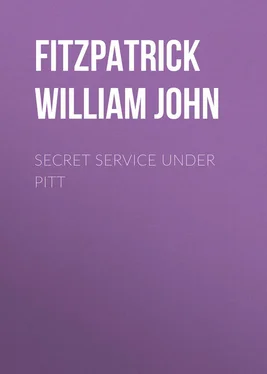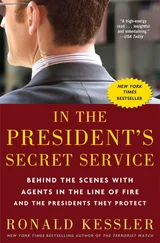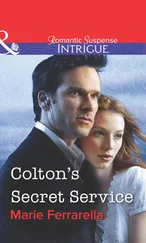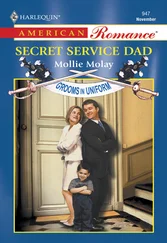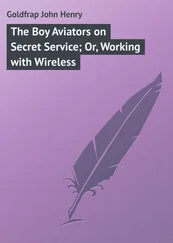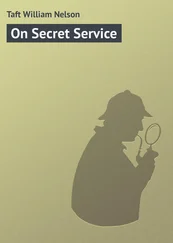William Fitzpatrick - Secret Service Under Pitt
Здесь есть возможность читать онлайн «William Fitzpatrick - Secret Service Under Pitt» — ознакомительный отрывок электронной книги совершенно бесплатно, а после прочтения отрывка купить полную версию. В некоторых случаях можно слушать аудио, скачать через торрент в формате fb2 и присутствует краткое содержание. Жанр: foreign_antique, foreign_prose, на английском языке. Описание произведения, (предисловие) а так же отзывы посетителей доступны на портале библиотеки ЛибКат.
- Название:Secret Service Under Pitt
- Автор:
- Жанр:
- Год:неизвестен
- ISBN:нет данных
- Рейтинг книги:5 / 5. Голосов: 1
-
Избранное:Добавить в избранное
- Отзывы:
-
Ваша оценка:
- 100
- 1
- 2
- 3
- 4
- 5
Secret Service Under Pitt: краткое содержание, описание и аннотация
Предлагаем к чтению аннотацию, описание, краткое содержание или предисловие (зависит от того, что написал сам автор книги «Secret Service Under Pitt»). Если вы не нашли необходимую информацию о книге — напишите в комментариях, мы постараемся отыскать её.
Secret Service Under Pitt — читать онлайн ознакомительный отрывок
Ниже представлен текст книги, разбитый по страницам. Система сохранения места последней прочитанной страницы, позволяет с удобством читать онлайн бесплатно книгу «Secret Service Under Pitt», без необходимости каждый раз заново искать на чём Вы остановились. Поставьте закладку, и сможете в любой момент перейти на страницу, на которой закончили чтение.
Интервал:
Закладка:
Another long letter of the same batch will be found the first placed in the second volume of Castlereagh, though an examination of it shows that it belongs to the middle of the previous volume. Detailed reference is made to Father O'Coigly's mission and movements, both in France and in London. One is struck by the accuracy of its information regarding the Ulster United Irishmen, of whom Turner was one. Of MacMahon, who travelled to Paris with O'Coigly, we learn that, ' tired of politics , especially those of France, he is to write to Citoyen Jean Thomas, 55 55 Of course one of Turner's many aliases. See p. 97 , infra .
à la poste restante à Hamburg , whom he looks on as a good patriot.' 56 56 Castlereagh Correspondence , ii. 1-7.
It will be remembered that a similar phrase occurs in the letter of Downshire's friend, printed by Froude, i. e. Rowan had 'professed himself sick of politics.' Again, 'I found Maitland and Stewart, of Acton, both heartily sick of politics.'
How to hang O'Coigly was now the difficulty. The Government knew – from somebody who had worked with him – that he was deep in the treason; but nothing could persuade the informer to prosecute him openly.
On April 11, 1798, Wickham writes from Whitehall: —
It is most exceedingly to be lamented that no person can be sent over from Ireland to prove Coigly's handwriting. Proof of that kind would be so extremely material, that I have no doubt that the law officers would think it right to put off the trial if they could have any hope of any person being found, in a short time, who could speak distinctly to his handwriting. 57 57 Ibid. i. 178.
The secret adviser who, as Portland said, 'should be detained,' worked his brain until at length a man, hailing from a place suspiciously familiar to Turner, is sent for to swear to the point. Samuel Turner, formerly of Newry, had intimate knowledge of every man in the place. One Frederick Dutton, described as 'of Newry,' was now subpœnaed by the Crown to swear to O'Coigly's handwriting in a letter addressed to Lord Edward Fitzgerald. 'He claimed to have seen Coigly write his name for the purpose of getting a watch raffled which belonged to a poor man under sentence of death.' Dutton had been a dismissed servant and had kept a public-house at Newry without a licence. 58 58 Dutton, on his examination, said that he had sworn in Ireland against one 'Lowry.' This is the man whom Turner, in his letters, constantly points to. Dutton admitted that he had previously sworn secrecy to the Society of United Irishmen, but the oath had been sworn only on a spelling-book.
Turner – it seems absurd to doubt the identity – got back to London on Tuesday, May 15, 1798. What secret help he gave to the law officers can only be inferred, for they pledged themselves that he should never be asked to come forward publicly. Though O'Connor, O'Coigly, and Binns 59 59 Trial of Arthur O'Connor and James Quigley at Maidstone. Howell's State Trials , vols. xxvi. and xxvii.
were arrested on March 1, their trials did not take place till late in May 1798. The Duke of Norfolk, Lords Moira, Suffolk, Oxford, John Russell, and Thanet, Fox, Sheridan, Whitbread, Erskine, Grattan, all testified to O'Connor's character. All the prisoners were acquitted, except the priest, notwithstanding that Lord Cloncurry paid a counsel to defend him. He was hanged on Penenden Heath, June 7, 1798. Judge Buller had leant heavily on O'Coigly in his charge.
O'Coigly [writes Lord Holland] was condemned on false and contradictory evidence. I do not mean to aver, as Lord Chancellor Thurlow assured me he did to Judge Buller, who tried him, that ' if ever a poor man was murdered it was O'Coigly ,' but simply to allude to a circumstance which, in the case of a common felon, would probably have saved his life. The Bow Street officer who swore to finding the fatal paper in his pocket-book, and remarked in court the folding of the paper as fitting that pocket-book, had sworn before the Privy Council that the same paper was found loose in O'Coigly's great-coat, and, I think, had added that he himself had put it into the pocket-book . An attorney of the name of Foulkes 60 60 Foulkes was the attorney whom Lawless engaged to defend O'Coigly. Lord Cloncurry, in his Memoirs , writes very inaccurately of the facts. He says that the arrests took place at Whitstable, instead of Margate, and that O'Coigly was hanged on May 7, whereas he should have written June. See p. 67 .
gave me this information, and I went with it to Mr. Wickham, who assured me that the circumstance should be carefully and anxiously investigated before the execution. But the order had gone down, and while we were conversing the sentence was probably executed. 61 61 Memoirs of the Whig Party. By Lord Holland, afterwards a Cabinet Minister.
Lord Holland adds that when the Judge was descanting on the mildness and clemency of the Administration, O'Coigly quietly took a pinch of snuff and said 'Ahem!'
When no evidence was produced in court which could legally ensure a verdict against O'Coigly, it seems reasonable to assume from the tone of the law officers and the Judge that they possessed some secret knowledge of his guilt, for in point of fact, though O'Coigly declared his innocence, he was deeply pledged to the conspiracy.
'O'Connor was leaving the court in triumph,' writes Mr. Froude, 'but the Government knew their man too well to let him go so easily. He was at once re-arrested on another charge, and was restored to his old quarters in Dublin Castle.' 62 62 Froude's English in Ireland , iii. 321.
From whom the fatal whisper came does not appear, but the sequel seems to leave no doubt that to Turner it was due. MacMahon and other prominent rebels were Presbyterian clergymen of Ulster. It was an object now with those who desired the collapse of the conspiracy to detach the Presbyterian party from the 'Papists.' Binns was a staunch Presbyterian rebel, a colleague of O'Coigly. In a letter dated Philadelphia, 1843, Binns, addressing Dr. Madden, states that great efforts were used to try and persuade O'Coigly to implicate him, 'offering Mr. Coigly his life if he would criminate me agreeable to the instructions of the Government, which proposal he indignantly refused to accede to. Though heavily ironed, he pushed the gentlemen out of his cell, when he there lay under sentence of death.'
We have seen that when severely tried he resorted to snuff. He had other small consolations. Even in his irons he talked irony. One of several letters of protest addressed by the priest to Portland, shortly before his death, tells him that he is 'one of his Grace's envoys to the other world, charged with tidings of his mild and merciful administration.'
As O'Coigly's memory has been all but beatified as a martyr's, it is due to the interests of historic truth to add – especially after the remarks of Lord Holland – the following from a letter written by Arthur O'Connor in 1842: —
Though there was not legal evidence to prove that the paper found in Coigly's coat-pocket was Coigly's, yet, the fact is, it was his, and was found in his riding-coat; for when the five prisoners were brought to Bow Street, a report was spread that the papers taken on the prisoners were lost; for the first time Coigly said it was fortunate the papers were lost, for that there was one in his pocket that would hang them all. He never made a secret to his fellow-prisoners that he got that paper from a London society. In my memoirs I will clear up this point.
O'Connor's promised work, however, never appeared.
As regards Dutton, the witness who swore to O'Coigly's handwriting, his subsequent career was cast on a spot also frequented by Turner. 63 63 See p. 31 , infra .
He is found at Cuxhaven, not very far from Hamburg, and, until 1840, holding office in its postal and diplomatic departments, and the husband of a lady well connected. 64 64 In the Pelham MSS. is a letter signed Frederick Dutton, regarding his Vice-Consulate, and dated Dec. 19, 1825.
Cuxhaven, as gazetteers record, was from 1795 a place of the utmost importance for the maintenance of intercourse between England and the Continent.
Интервал:
Закладка:
Похожие книги на «Secret Service Under Pitt»
Представляем Вашему вниманию похожие книги на «Secret Service Under Pitt» списком для выбора. Мы отобрали схожую по названию и смыслу литературу в надежде предоставить читателям больше вариантов отыскать новые, интересные, ещё непрочитанные произведения.
Обсуждение, отзывы о книге «Secret Service Under Pitt» и просто собственные мнения читателей. Оставьте ваши комментарии, напишите, что Вы думаете о произведении, его смысле или главных героях. Укажите что конкретно понравилось, а что нет, и почему Вы так считаете.
